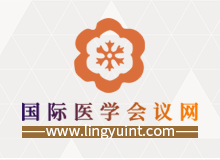◆ 会议时间:2026年8月30日-9月2日
◆ 会议地点:德国 慕尼黑
◆ 会议简介:
2026年国际环境流行病学协会(ISEE)年会将于2026年8月30日-9月2日在德国慕尼黑举行。
国际环境流行病学学会(ISEE)起源于1987年,是一个包括拉丁美洲、地中海、欧洲和东亚60多个国家和地区分支机构和地方团体成员的国际组织。ISEE成员讨论的主题包括环境暴露(如空气污染,危险废物,重金属,农药,辐射),健康影响(如癌症,心血管疾病,神经系统影响,生殖影响),方法学(如生物标志物,生态调查,实验设计,暴露/剂量评估,Meta分析,风险评估,统计),环境-基因相互作用以及道德与法律。ISEE会员来自于流行病学、暴露评估和科学,毒理学,生物化学和生物统计学等学科。ISEE为相关人员探讨健康与环境研究方面独特的问题提供了一个平台。ISEE的使命是宣促进环境暴露对人群影响的流行病学研究;鼓励卫生专业人士之间的沟通;促进方法学的进步,加强环境卫生政策等等。未经许可禁止复制摘录转载本站任何内容-国际医学会议网(lingyuint.com)
ISEE 2026 - Annual Meeting of the International Society for Environmental Epidemiology
Dates:
August 30 - September 2, 2026
Location:
Science Congress Center Munich
München, Germany
Dear colleagues and friends,
We’re delighted to personally invite you to ISEE 2026 in Munich.
Under the theme “Understanding and Responding to Global and Local Challenges: Environmental Epidemiology in a Changing World”, we’ll come together to exchange ideas, share discoveries, and reflect on our evolving role as environmental epidemiologists in today’s world.
Set in one of Europe’s most vibrant cities, ISEE 2026 will offer space to connect, reflect, and recharge – both intellectually and personally.
Expect a welcoming atmosphere, stimulating discussions, and the unique charm of late-summer Munich, where exciting science and community meet in a city shaped by both tradition and innovation.
We can’t wait to connect with you: ISEE you in Munich 2026!
With warmest regards,
Prof. Annette Peters
Director Institute of Epidemiology, Helmholtz Munich
Chair, Local Organizing
Committee ISEE 2026
Dr. Alexandra Schneider
Deputy Director Institute of Epidemiology, Helmholtz Munich
Chair, Scientific Organizing Committee ISEE 2026
◆ 参会对象:政府代表、医院管理者、医护人员及该领域科研人员、医药企业代表等。
|

